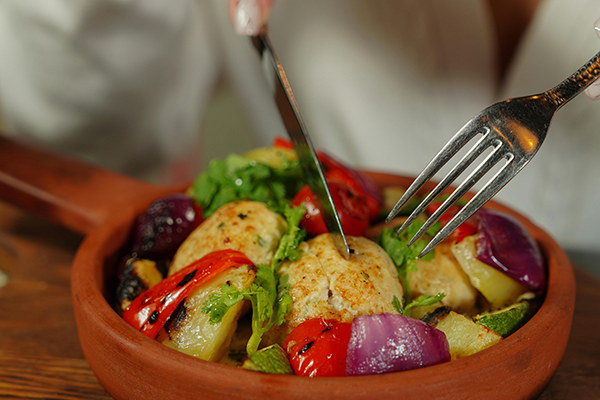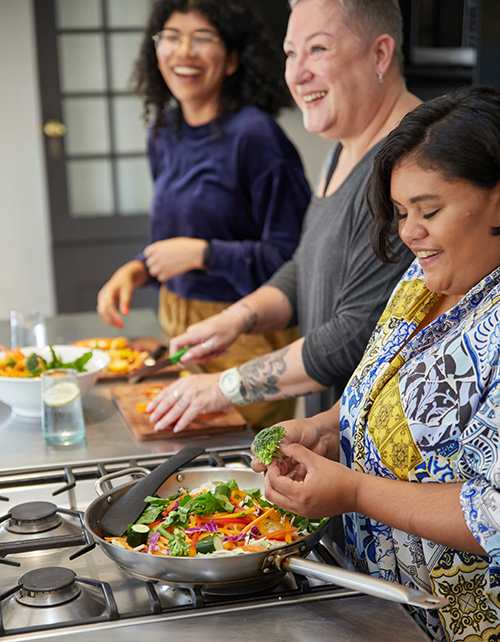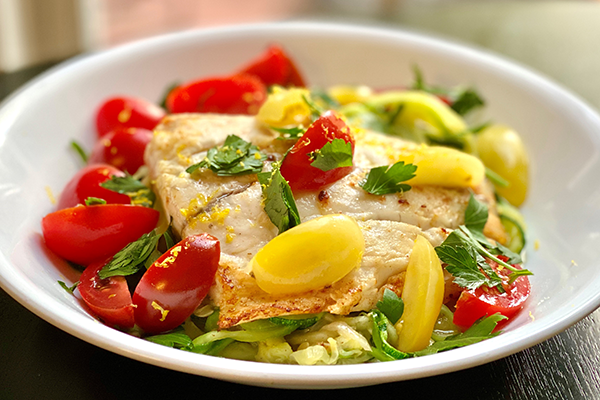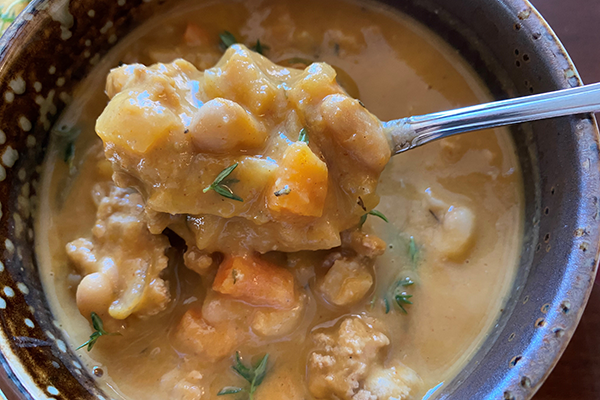It is estimated that over 2 million new cases of cancer will be diagnosed in the US this year. Over 40% of those cases could be prevented through lifestyle changes. The foods and beverages that we consume on a regular basis can either increase or decrease our risk for cancer. Of course, we can never have 0% risk, but there are many changes that we can make to our food choices that can dramatically reduce our risk of cancer.
The foods and beverages we consume every day have a direct impact on our cancer risk. #saslife Share on XThree Main Phases of Carcinogenesis
This is the process by which normal cells turn into cancer cells.
- Initiation – when normal cells are hit with some type of DNA damage. This can be from oxidation, inflammation, or other things like viruses and chemicals.
- Promotion – when the initiated cells are stimulated to grow.
- Progression – when the tumor grows and invades neighboring tissues.
Nutrients from the foods we eat can impact each phase, preventing initiation, repairing DNA and inducing cancer cell death so that the cancer doesn't progress.
Underlying Factors that Contribute to Cancer Risk – Root Cause
These areas have the most influence on our potential to develop cancer. When any of these processes are out of balance for a long period of time, the body’s defenses fail, and cancer can proliferate.
- Primary driver for cancer
- Promotes cell division, creating more cancer cells
- Promotes inflammation, which can trigger initiation
- Contributes to a dysregulated immune system function
Inflammation
- Can damage DNA, triggering initiation
- Alters cell signaling, causing cells to ignore signals that tell them to stop growing
- Plays a role in every phase of carcinogenesis
Immune System Function
- Normal function of the immune system detects and destroys abnormal cells and most likely prevents or curbs the growth of many cancers
Detox System
- Supporting our bodies natural detox system is important to get rid of toxins before they can cause DNA damage, triggering initiation of cancer cells
Oxidation
- Can damage DNA, triggering initiation
- Plays a role in promotion and progression of cancer
Diet and Lifestyle Strategies that Impact Underlying Factors
Overall, we want to reduce insulin resistance and chronic inflammation, support our immune and detox systems, and reduce oxidative stress. This can be done by:
1. Limit excess sugar and highly processed foods
- Aim for a real, whole foods-based diet.
- Base meals around protein, nutrient dense carbohydrates, healthy fats, and plenty of non-starchy veggies.
- Address any nutrient deficiencies or insufficiencies (especially Vitamin D!).
2. Eat a colorful variety of plant foods rich in phytonutrients.
- Aim for 8-10 servings of fruits and vegetables per day. Eat cruciferous vegetables daily.
- Beans and lentils are also great sources of phytonutrients.
- Don’t forget about herbs, spices and tea.
- Enjoy coffee and tea, and even cocoa (just limit the sugar content).
3. Ensure adequate protein intake.
- Protein needs vary, aim for 0.5 to 1g per pound body weight.
- Get a variety of protein sources, including omega-3 rich fish.
4. Aim for 2-3 servings of omega-3 rich fish per week.
- Omega-3s from plant-based foods (flax, hemp, chia seeds and walnuts) can help as well, they are just not as powerful.
5. Ensure adequate water intake.
- Start with drinking ½ your body weight in ounces (if you weigh 160 pounds, this would be 80oz daily).
6. Limit or avoid alcohol.
- If you consume alcohol at all, do so in moderation.
7. Optimize your microbiome.
- Ensure adequate fiber intake from real foods.
- Eat fermented foods daily like kimchi, sauerkraut, kefir, and plain yogurts.
8. Limit exposure to toxins.
- In food (pesticides and additives), water, personal care products, cleaners, etc.
- Do not heat food in plastic containers.
- Limit fried, grilled and charred.
Reducing cancer risk is not necessarily about eating or not eating a specific food, it’s about what you are doing all day, every day, including all the modifiable lifestyle factors beyond nutrition such as exercise, sleep, stress management, and avoiding toxins such as smoking cigarettes.
Turkey Pumpkin and White Bean Chili
Makes 10 servings
Recipe adapted from: Aimee Mars
PRINT RECIPE
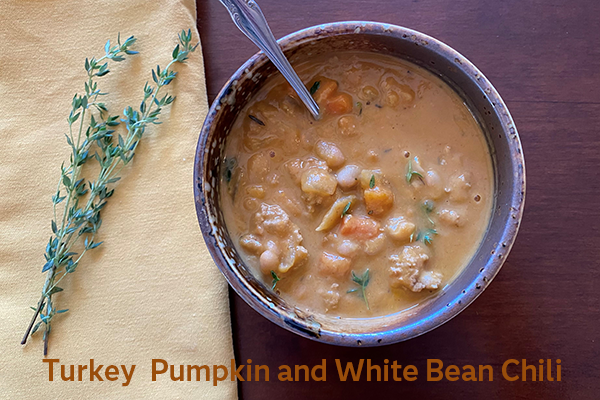
Ingredients
3 Tbsp olive oil
1 medium onion, diced
2 carrots, peeled and chopped
2 garlic cloves, minced
1 Tbsp ground coriander
1 Tbsp smoked paprika
1 tsp cumin
½ tsp ground black pepper
2 lbs ground turkey
2 Tbsp thyme
1 tsp sea salt
1 15-oz can pumpkin puree
2 15-oz cans cannellini beans, drained
2 cups chicken broth
½ - 1 cup full fat canned coconut milk
Instructions
- Place a large stockpot or a 4-5 quart Dutch Oven over medium-high heat and heat the olive oil. Add the onion and carrots and cook until softened, about 5 minutes.
- Add the garlic and spices and toss to coat, cooking an additional minute.
- Push the vegetables to the side and add the ground turkey using a wooden spoon to break apart. As the meat browns, break it into small pieces and cook until no longer pink, about 8-10 minutes.
- Mix in the thyme, salt, pumpkin puree, cannellini beans, and chicken broth and bring to a simmer. Reduce heat, and slightly cover the pot with the lid and cook for 25 minutes.
- Remove the pot from the heat and stir in the coconut milk.
